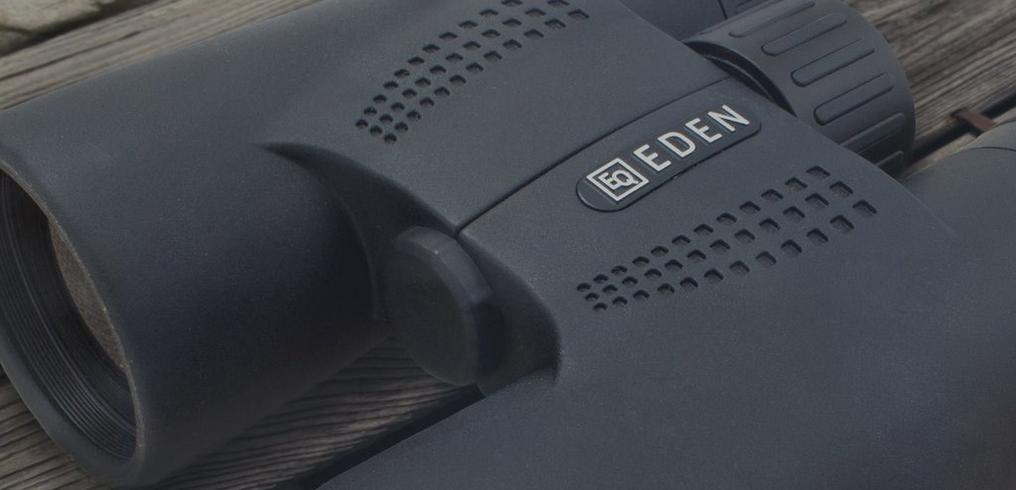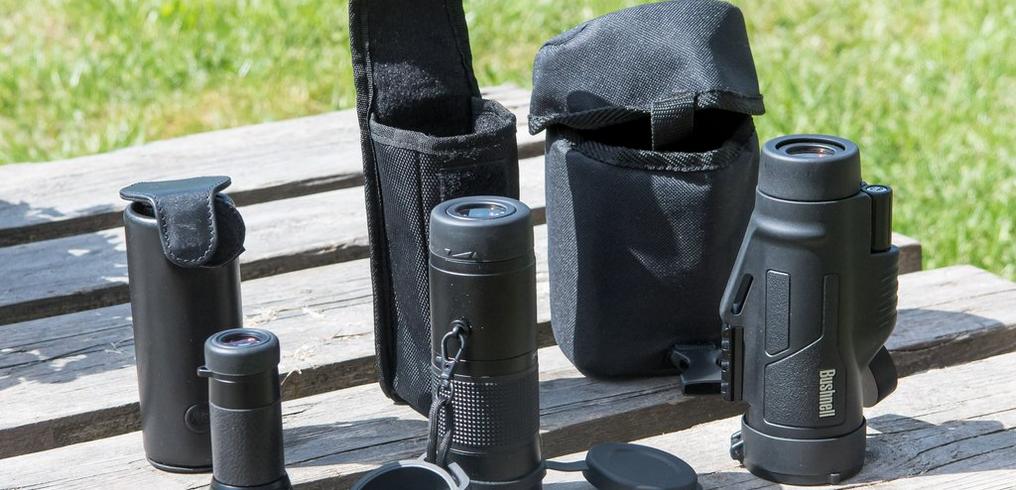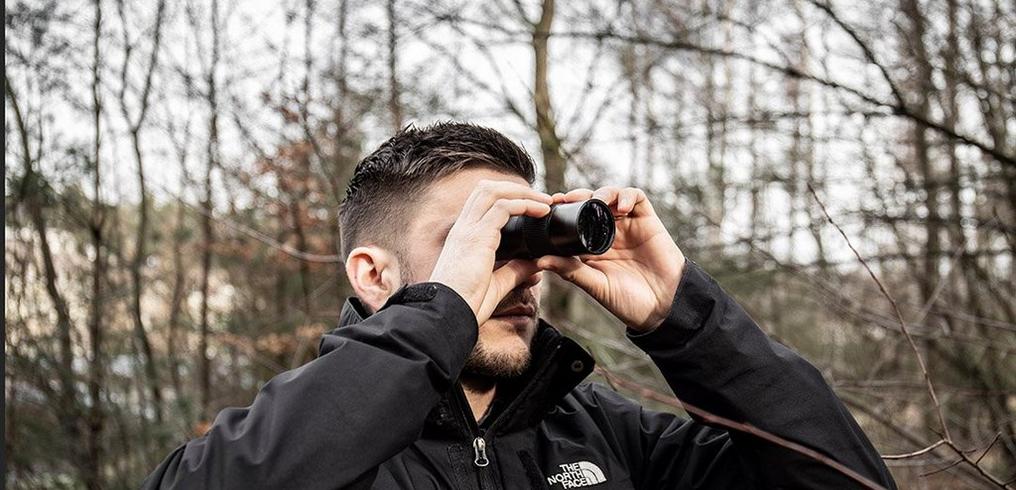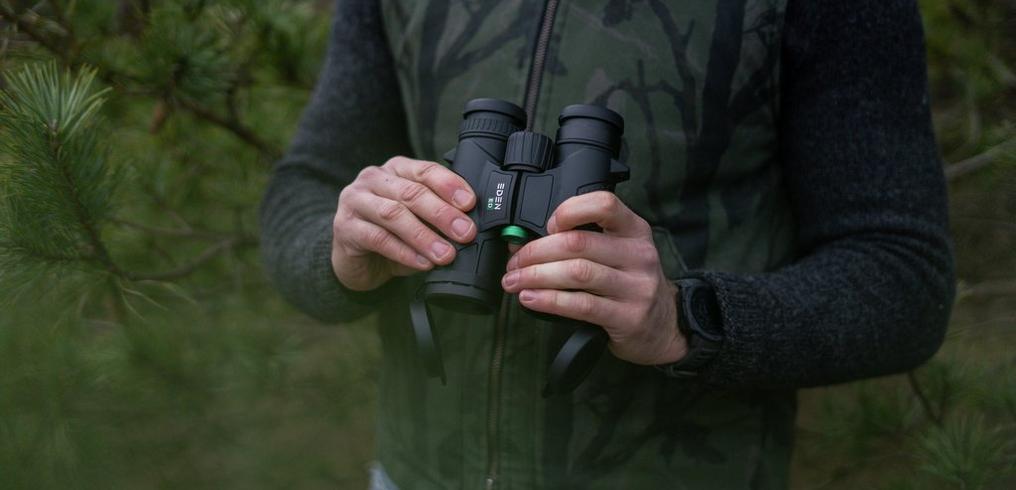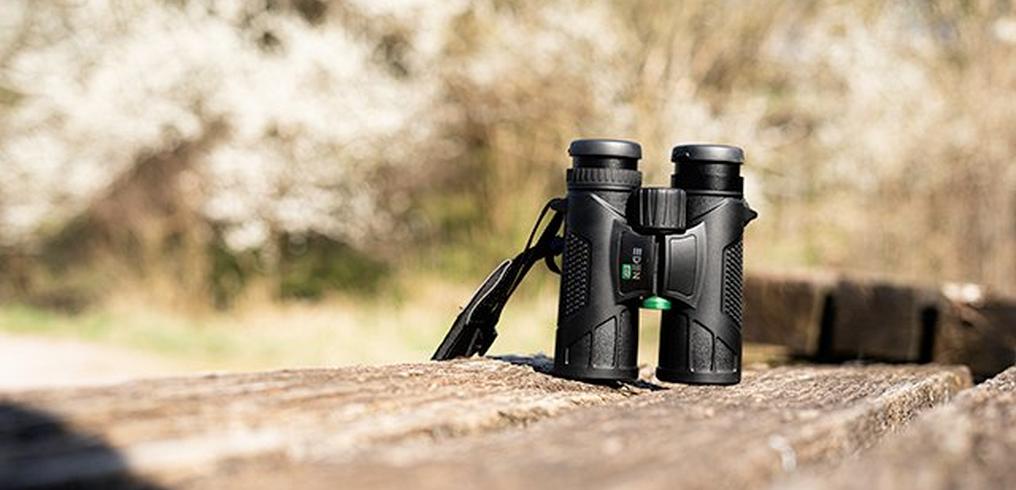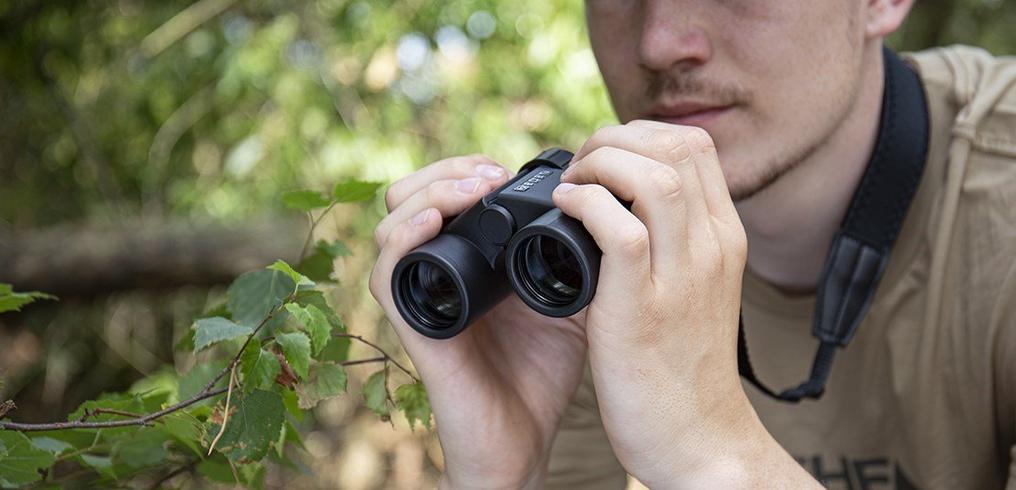Night vision binoculars
Under poor light conditions, it is important to get the brightest and clearest image possible. So remember to check the brightness and the twilight factor.
It is essential that a lot of light enters the binoculars. That is why a large front lens is of great importance. A large front lens also ensures that there is a large(r) exit pupil. This, too, is of great importance because our pupils dilate in twilight conditions. It is important that the exit pupil is at least as large as the human pupil, which measures a maximum of 7 mm in youngsters and young adults. And since our eyes become less flexible as we grow older, the size is about 5 mm for the older people among us.
A suitable choice of binoculars for night vision would be a 7x50 pair of binoculars, for instance. Obviously, these binoculars must be of good quality so that they can render the best possible images. In practice, a poorer quality of coating, for instance, can greatly affect the clarity and brightness of the images rendered. Even when the values of the twilight factor and the brightness and clarity are the same as those in good quality binoculars, in practice, the difference is clearly discernible.
Night vision binoculars should not be mistaken for residual light amplifiers and infra-red binoculars, which make use of electronic imaging, and render the familiar 'vague or blurred' images we recognise from military activities on TV.
